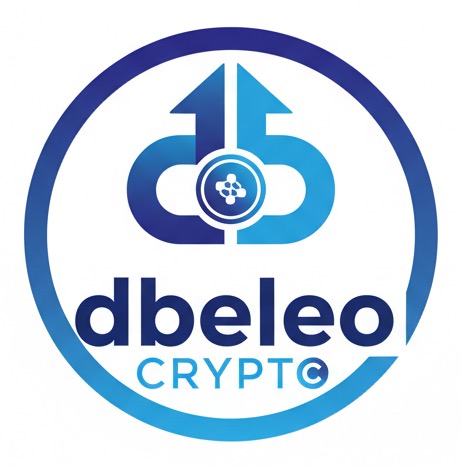Putting the Play in Play-to-Earn: 40% of Players in the U.S. and U.K. Are Interested in Trying Blockchain Games, but There Are Barriers to Overcome First.
While blockchain games currently lack the large audiences traditional AAA titles attract, their potential to change the way players own, share, and trade game content is potentially huge.
Another major challenge for the mainstream acceptance and adoption of blockchain gaming is a lack of knowledge of its underlying technology: the blockchain.
Despite this, our survey results show that 40% of gamers across the U.S., U.K., and Indonesia are interested in blockchain games and will likely try them out this year.
We found that while the Play-to-Earn (P2E) aspect of blockchain games sounds appealing to some gamers, it is unlikely to be enough to convince a wider audience on its own.
When given a choice between fun and profit, medium-opportunity prospects (49% of gamers) are more likely to choose fun, while high-opportunity prospects choose profit.
The less friction a blockchain game creates, the better—in messaging and in the game. For example, nearly half of medium-opportunity prospects say setting up a crypto wallet is a barrier to playing blockchain games. (Newzoo)
Best Play-to-Earn Games for Crypto & NFT Rewards in October 2025
Play-to-earn (P2E) crypto games utilize blockchain technology to create digital assets that can be owned, traded, and sold to earn rewards in the form of NFTs or tokens.
The best play-to-earn games for crypto and NFT rewards are Axie Infinity, The Sandbox, Decentraland, Illuvium, Splinterlands, Big Time, Alien Worlds, and more.
This guide will examine some of the top play-to-earn crypto games, considering factors such as gameplay mechanics, earning potential, and overall user experience.
Highlights of Top Titles
- Axie Infinity – Best P2E game where you collect, breed, and battle unique digital pets for rewards.
- The Sandbox – Creative P2E platform allowing you to build and monetize your virtual world with NFTs.
- Illuvium – Open-world RPG with strategic battling and NFT creature collection.
- Decentraland – Decentralized virtual world where you can trade virtual land and items.
- Splinterlands – Popular blockchain card game offering strategic battles and NFT trading. (NFT Evening)
12 Best Crypto Games to Play in 2025 – Top Blockchain Games
Discover the crypto games with the highest quality gameplay, most players, and best earning potential.
Here are the best crypto games to play right now:
- Axie Infinity — A renowned Ethereum-based play-to-earn game where players collect creature NFTs and battle them.
- The Sandbox — A virtual world/metaverse platform on blockchain where players can build, own, and monetize experiences via LAND NFTs and the SAND token.
- Decentraland — A leading crypto gaming/metaverse platform where users own virtual real estate and trade items using NFTs.
- Illuvium — A premium blockchain-game RPG with creature-collection mechanics, built for high quality visuals and NFT asset ownership.
- Gods Unchained — A competitive trading-card blockchain game where cards are NFTs and can be battled, traded, or sold.
- Star Atlas — A sci-fi space exploration MMO built on Solana, with a player-driven economy and NFT assets like ships and land.
- Pixels — A farming/social sim game on Ronin network where players grow plots, complete quests, and earn the PIXEL token.
- Big Time — A free-to-play MMORPG/action RPG that blends traditional gameplay with NFT gear-drops and P2E mechanics.
- DeFi Kingdoms — A cross-chain fantasy RPG game with Hero NFTs and tokenized resources where players battle, farm, and trade.
- Alien Worlds — A space-metaverse game where players mine resources, acquire NFTs, and engage in battles/trading across planets.
- CryptoKitties — One of the earliest blockchain games, based around collectible and tradable virtual cat NFTs.
- Pudgy World — A virtual world centered on community and collectible Pudgy Penguin NFTs.
Why these make the list
- They span different genres: metaverse building (The Sandbox, Decentraland), card/collectible games (Gods Unchained, CryptoKitties), RPG/adventure (Illuvium, Big Time), space exploration (Star Atlas, Alien Worlds), and social/farming sims (Pixels, DeFi Kingdoms).
- They incorporate blockchain elements: NFT ownership, token economies, tradable in-game assets.
- Many offer accessible entry points (free-to-play or low barrier) or upgraded versions for 2025.
- They are cited by multiple sources as being relevant for 2025.
Key considerations for U.S. players
- Entry cost: Some games require upfront purchase of NFTs or assets (e.g., Axie Infinity historically).
- Earning model: Rewards are often tied to native tokens which may carry volatility.
- Sustainability: Evaluate the game’s tokenomics, economy size, and community activity.
- Fun & gameplay: The “earn” element is secondary to having a good gameplay experience.
- Legal/tax aspects: Crypto earnings may trigger tax events; ensure you comply with U.S. regulations.
Also read:
- Play-to-Earn in 2025: Is it still worth playing for money?
- 5 Ways Playtime is Changing the Play-to-Earn Game
- Best Web3 Games : Play-to-earn and Walk-to-earn!
- Top Play-to-Earn Crypto Games for Mobile
- The Rise of Play-to-Earn Games: What Drives The Axie Infinity Craze?
- PayPal Games That Pay Real Money
- The Next Gaming Gold Rush? Exploring the Top 5 Emerging Web3 Game Platforms to Watch Now
What Are Play-to-Earn Games and How They Work in 2025
Play-to-earn games represent a revolutionary shift in the gaming industry, utilizing blockchain technology to create decentralized virtual worlds where players truly own their in-game assets.
The core mechanism behind these crypto games involves rewarding players with the game’s native token for various in-game actions. Players earn money by winning battles, completing missions, trading virtual land, or participating in the game’s economy through staking and governance activities.
These digital assets can be freely traded on decentralized marketplaces, with values determined by player demand and asset rarity. (Token Metrics)
Types of Play-to-Earn Crypto Games
Here are some key types of play-to-earn games in cryptocurrency:
- Collectible Card Games: These blockchain games let you collect, trade, and battle with digital cards. You can earn cryptocurrency by winning matches or selling rare cards. Popular examples include Gods Unchained and Splinterlands.
- Role-Playing Games (RPGs): In these games, you will be creating and developing characters, completing quests, and engaging in battles or adventures. You can earn cryptocurrency by completing missions, defeating enemies, or trading valuable in-game items and characters.
- Virtual World Games: In these passive income games, you explore and interact in digital worlds. You can buy real estate, build structures, and trade items to earn crypto. Games like Decentraland and The Sandbox fall into this category.
- Battle Royale / Strategy / Racing / Sports Games: These genres are emerging in P2E space and allow for different modes of earning via competition, asset ownership, or performance. (NFT Evening)
Pros and Cons of Play-to-Earn Games
Pros
- Generate passive income by playing games.
- True ownership of virtual assets via NFTs and blockchain.
- New gaming communities and the economy.
Cons
- Some P2E games require significant initial in-game transactions or investments.
- Many scam tokens or unsustainable tokenomics launched through GameFi niches.
- In-game economies can be susceptible to inflation or deflation, and entry barriers still exist. (Newzoo)
How to Choose the Right Play-to-Earn Game
- Check if the project is legit: Look for developer transparency, audited smart contracts, and a clear roadmap.
- Understand the token’s role: What do the tokens/rewards do? Are they earned or just purchased?
- Look at the game progress and community: Is there real gameplay, active users, and meaningful engagement?
- Think beyond daily rewards: Sustainability of the economy and long-term value matter.
- Protect your wallet: Use strong security practices. The blockchain game space can attract risks. (Cryptonews)
Conclusion
For U.S. players interested in combining gaming with earning crypto and NFT rewards, the play-to-earn (P2E) space offers compelling options. With titles like Axie Infinity, The Sandbox, Illuvium, Decentraland, and Splinterlands leading the pack, it’s possible to turn fun gameplay into real-world value. That said, keep in mind the barriers—entry costs, tokenomics risk, and the need for real fun and engagement. If you approach carefully, choose wisely, and stay informed, the P2E space can offer both entertainment and opportunity.
FAQ
What does “play-to-earn” mean?
“Play-to-earn” refers to video games that reward players with assets—such as cryptocurrency tokens or NFTs—that have real-world monetary value.
Are play-to-earn crypto games legitimate?
Yes, many are legitimate. They use blockchain technology to grant players ownership of in-game assets. However, like all investments, they carry risks—especially around sustainability and tokenomics.
How do I start playing a P2E game?
First, choose a game with a trusted developer and clear earning model. Then set up a compatible crypto wallet, acquire any required assets or tokens (if needed), and start playing the game to earn rewards.
Do I need to invest money to earn?
Not always. Some P2E games have free-to-play elements, though others require initial investment (e.g., buying NFTs or in-game assets). Always check the entry requirements.
What should I watch out for as a U.S. player?
- Game economics: Is the token/asset sustainable?
- Legal and tax implications: Crypto earnings may be taxable.
- Entry cost vs. reward: Some games require high upfront cost with unclear reward.
- Security: Use reliable wallets, watch for scams or malicious games.
Will P2E games become mainstream?
There’s potential: a notable portion of gamers (including in the U.S.) are interested in blockchain games. But most say they want fun first, profit second. So games that focus primarily on earning rather than enjoyable gameplay may struggle to become mass market. (Newzoo)







